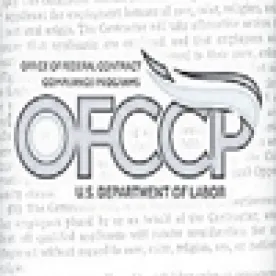Quick Hit:
On December 7, 2020, the Department of Labor’s Office of Federal Contract Compliance Programs (“OFCCP”) issued its final rule enhancing the religious exemption for federal government contractors already contained in its regulations (the “Rule”). The Rule, through the addition of definitions, adds detail to and arguably expands the already existing exemption on religious entities’ compliance with the anti-discrimination provisions of Executive Order 11246. The Rule becomes effective January 8, 2021.
Key Takeaways:
As a practical matter, the Rule will have minimal impact on the contractor community. Most government contractors do not fall within the scope of the entities covered by the exemption, even as clarified by the Rule. Further, religious discrimination is not typically a focal point of OFCCP compliance evaluations. However, with the agency’s new accommodation focused reviews, which will include an assessment of religious accommodations, the Rule may have more practical import for those entities covered by the enhanced exemption. Furthermore, to the extent religious entities were discouraged from entering into federal government contracts due to fear of OFCCP review of their employment practices containing religious components, the new Rule will likely reduce any such concerns.
Even for those contractors that fall within the exemption, OFCCP makes clear that the exemption does not relieve them of all or even most of OFCCP’s requirements. As the agency notes, “[e]ven for religious organizations that serve as government contractors or subcontractors, they too must comply with all of E.O. 11246’s nondiscrimination requirements except in some narrow respects under some reasonable circumstances recognized by law.”
More Detail:
On August 15, 2019, OFCCP issued a notice of proposed rulemaking regarding the scope of the religious exemption already contained in its regulations. OFCCP’s regulations exempted any federal contractor that was a “religious corporation, association, educational institution, or society” from complying with the anti-discrimination provisions of the Order “with respect to the employment of individuals of a particular religion to perform work connected with the carrying on by such corporation, association, educational institution, or society of its activities.” However, many of the terms contained in the exemption were previously undefined. By adding definitions, OFCCP contends the new Rule clarifies the religious exemption and “ensure[s] that OFCCP respects religious employers’ free exercise rights, protects workers from prohibited discrimination, and defends the values of a pluralistic society.”
Specifically, the Rule adds a definition of “religion” that includes not only religious beliefs, but also “all aspects of religious observance and practice.” In addition to the term “religion,” the Rule provides new definitions for the terms “particular religion;” “religious corporation, association, educational institution, or society;” and “sincere,” as follows:
Particular religion is defined by the Rule as “the religion of a particular individual, corporation, association, educational institution, society, school, college, university, or institution of learning, including acceptance of or adherence to sincere religious tenets as understood by the employer as a condition of employment, whether or not the particular religion of an individual employee or applicant is the same as the particular religion of his or her employer or prospective employer.”
Religious corporation, association, educational institution, or society is defined by the Rule as “a corporation, association, educational institution, society, school, college, university, or institution of learning that:
(i) Is organized for a religious purpose;
(ii) Holds itself out to the public as carrying out a religious purpose;
(iii) Engages in activity consistent with, and in furtherance of, that religious purpose; and
(iv) (A) Operates on a not-for-profit basis; or (B) Presents other strong evidence that its purpose is substantially religious.”
The Rule also provides a list of illustrative examples of entities that meet and do not meet this definition.
Sincere is defined by the Rule as “sincere under the law applied by the courts of the United States when ascertaining the sincerity of a party’s religious exercise or belief.”
The Rule is intended to be “construed in favor of a broad protection of religious exercise, to the maximum extent permitted by the U.S. Constitution and law, including the Religious Freedom Restoration Act of 1993, as amended, 42 U.S.C. 2000bb et seq.” It is scheduled to become effective on January 8, 2021.




 />i
/>i

